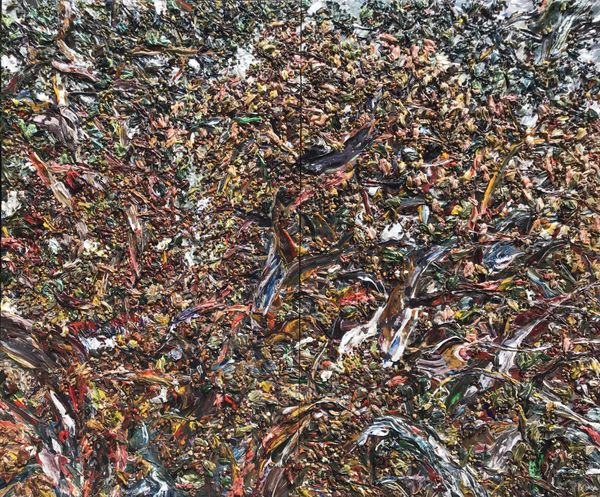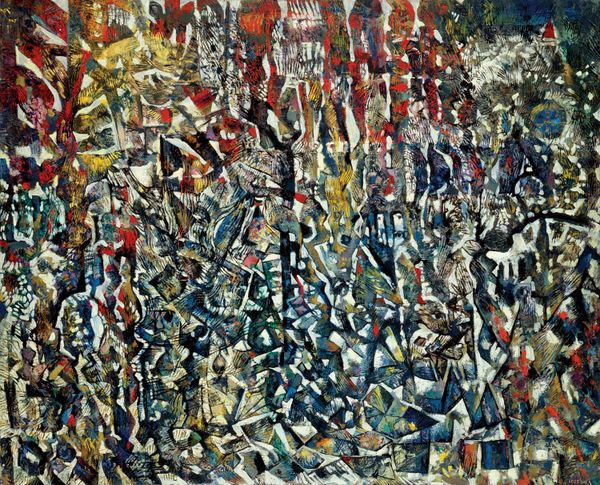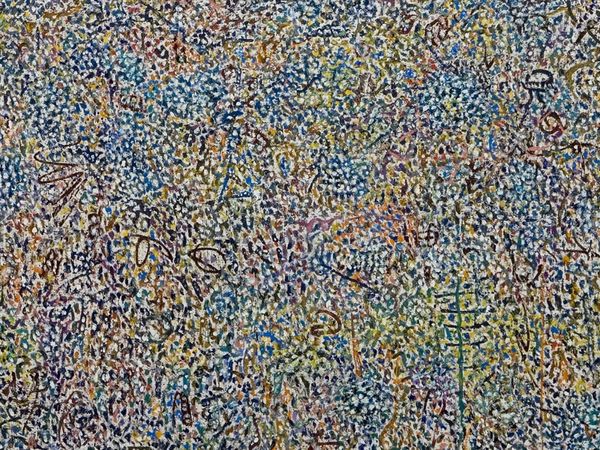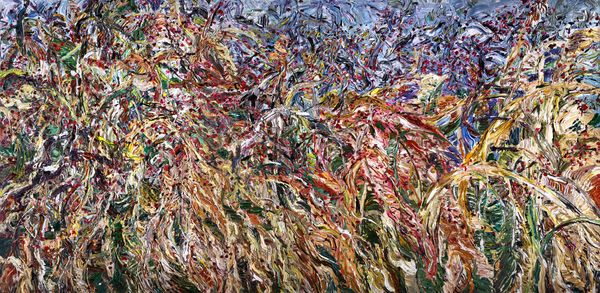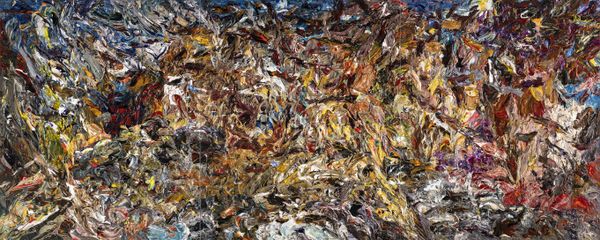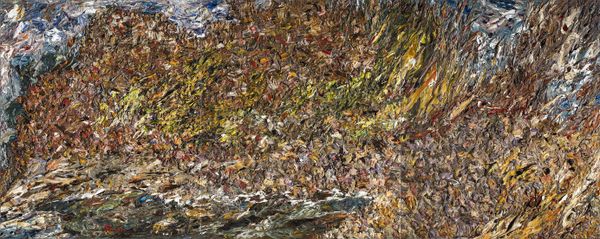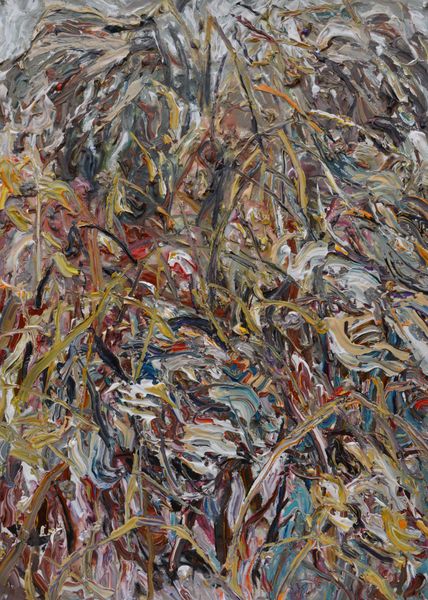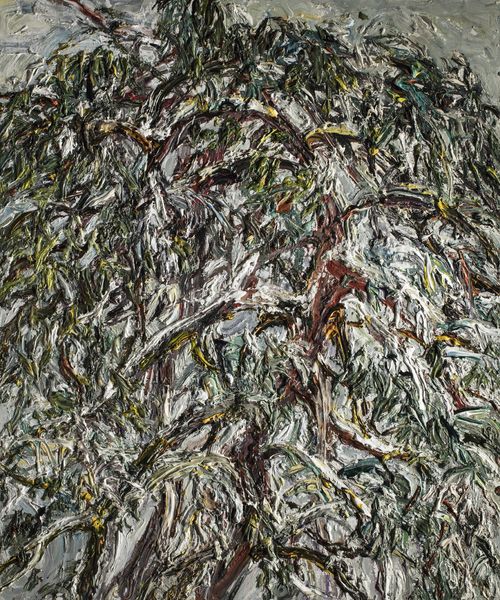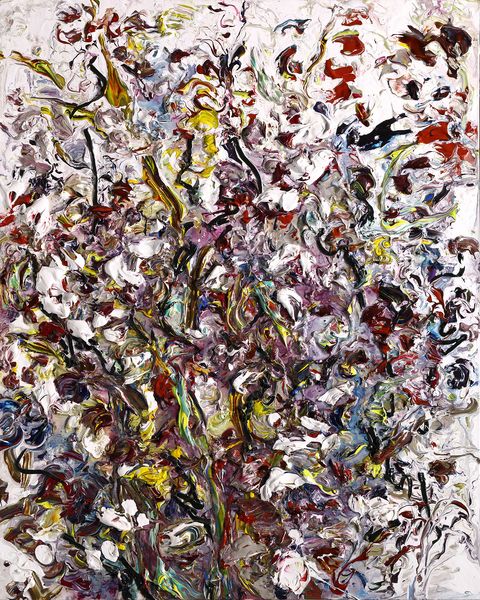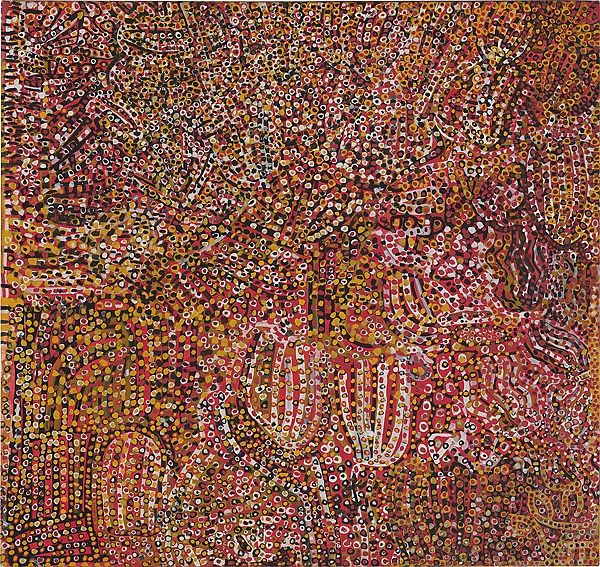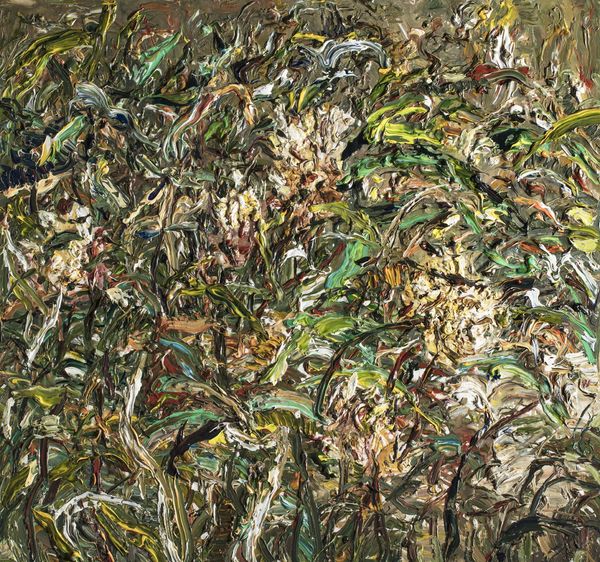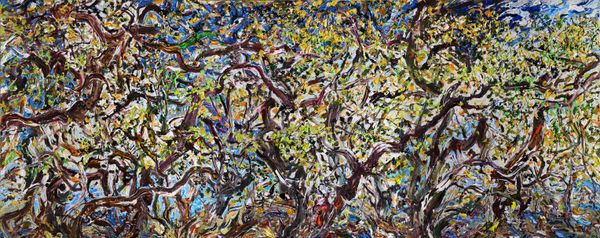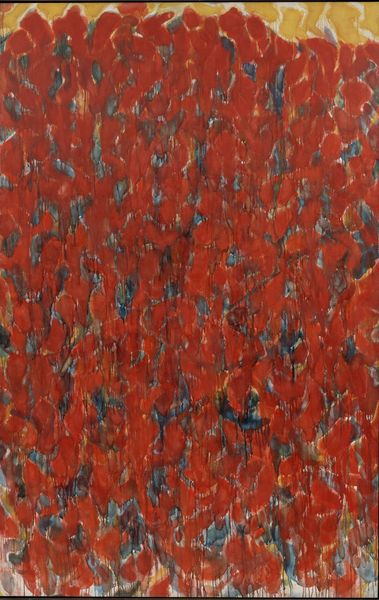
Copyright: ARTERA: FROM ARTIST
Curator: What a fascinating surface! It almost feels sculptural. Is it plaster, maybe? Editor: Not quite. This is "Peach Blossom Fate" by Wang Xinfu, created in 2019. He primarily works with oils, and, in this piece, specifically using impasto to build up the surface. Curator: Impasto explains it. I imagine standing in front of it gives the painting so much texture, especially as the light catches all of those peaks. Does the thickness of the paint connect to other aspects of the work? Editor: It certainly does. It’s part of the language he is creating. This particular piece reflects the lineage of Abstract Expressionism, particularly artists like Pollock who were working during and after World War II. We might view this not as a still life, not as purely representational but about freedom. How the state is responding, at the time this artwork was released. Curator: An interesting point considering the date. What's immediately striking is the density. It appears, if I'm reading the title right, as peach blossoms, the blossoms have totally overtaken whatever substrate lies beneath. Do you get a sense of optimism from this kind of overwhelming floral display, or something else? Editor: More ambivalence, perhaps? Thinking of that density in relation to the artist himself. He grew up as an only child due to China's One Child Policy. That feeling of density or that idea of fate has a much larger weight to it, not about optimism but more in regards to weight, the sheer amount. Curator: So, in that reading, there is a cultural critique, something about the role and influence of societal forces? Editor: Absolutely, thinking of this piece and other abstract paintings not just in terms of colors but in terms of how painting allows one to have more liberty compared to writing and sculpture at times. Painting grants freedom within society itself, offering a form of political critique that sidesteps explicit constraints. Curator: It is wonderful how something that looks at first like a simple, attractive bloom, with just a little unpicking, reveals such complex, layered perspectives on history, materiality, and production. Editor: Indeed, it showcases how the social and political contexts deeply shape the creative act, even within abstract forms.
Comments
No comments
Be the first to comment and join the conversation on the ultimate creative platform.
